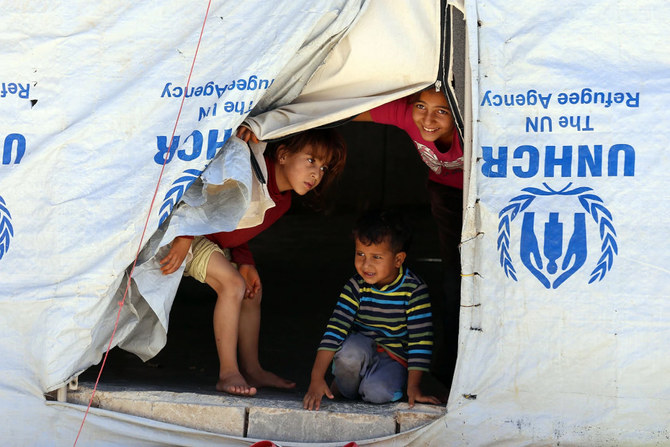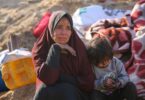Dr. Majid Rafizadeh
This year’s Refugee Week, which aims to celebrate and honor refugees across the world, runs from June 19-25. World Refugee Day also takes place every year on June 20. This is a good time to raise awareness about refugees and examine the important issues that impact refugee diasporas across the world. Countries often choose a different theme for Refugee Week every year. In the UK, the theme for this year is “Compassion,” while “Finding Freedom” is the theme assigned to this year’s Refugee Week in Australia.
First of all, it is important to point out the courage and strength that it takes to flee one’s home and attempt to find a safe and secure place for one’s family, particularly children and the elderly. Being forced to abandon the place where one has lived, studied and grown up, being forced to leave friends and relatives behind and to start a new life in a foreign place is traumatic; to survive and thrive in a new home needs extraordinary courage, faith and strength. If refugees are successfully resettled in a new country, they then face other significant challenges, including language barriers and difficulties accessing medicine and healthcare services, finding suitable housing, adjusting to a new culture, rules and norms, and finding work, as well as prejudice and racism.
Unfortunately, only a fraction of the world’s refugees are able to settle in a new country. As one refugee from Iraq, Ahmed Badr, who is now interim director of the Patricelli Center for Social Entrepreneurship and adjunct assistant professor of public policy at Wesleyan University, said: “My family and I became refugees in 2006, leaving Baghdad and moving to Syria, which was taking in refugees at the time. After over a year of interviews, we received a phone call: We had four one-way tickets to Sioux Falls, South Dakota. We were incredibly lucky. Only 2 percent of all refugees are resettled to a new country, and the average time an individual spends in the refugee camp is over a decade.” It is worth noting that half of the refugees around the world are children. In total, a staggering number – 108.4 million individuals – were displaced across the world at the end of 2022, according to a report released this month by the UN High Commissioner for Refugees. This is the highest number since the Second World War.
There are several reasons why refugees decide to flee their homes. The most important factors are violence, conflict, war and fear of persecution, which can take different forms, such as religious, racial or political, as well as prejudice against certain social groups. For example, many refugees currently come from Syria. Since 2011, Syria has witnessed the second-deadliest conflict of the 21st century – after the Second Congo War – and the worst humanitarian crisis in a generation. The Syrian civil war has resulted in an estimated 600,000 deaths, while almost 14 million people, equivalent to more than half of the Syrian population, have been displaced by the conflict. Other countries from where many refugees originate include Ukraine, Afghanistan, Iraq, Yemen and Sudan. The current conflict in Sudan has caused a massive displacement, with more than 1 million people having fled their homes to seek safety, mostly elsewhere within Sudan, but a significant number have also left the country as refugees.
Some other reasons behind people leaving their homes and crossing borders include natural disasters, starvation and a lack of water and food. One of the issues to address is that the overwhelming majority of refugees (about 85 percent) are hosted in developing countries. Refugees can have a significant impact on the social, economic, political and even environmental landscapes of host countries. The hosts tend to face political and economic strain if they are not prepared for the situation. Problems arise when host countries do not have the resources or are not economically and socially prepared to deal with a huge influx of refugees.
As a result, it is important that developed nations offer assistance. With effective investments and integration, refugees can be a great asset that stimulate their host country’s economy and promote productivity.
As Amnesty International stated: “Wealthier countries aren’t doing nearly enough to share the cost of protecting people who have left everything behind. Appeals for humanitarian assistance for refugees are consistently – and often severely – underfunded. In short, the world urgently needs a new, global plan based on genuine international cooperation and a meaningful and fair sharing of responsibilities.” Finally, as we mark this important week, let us conclude with the words of Warsan Shire, a poet who was born in Kenya to Somali parents and now lives in London. She was named the inaugural Young Poet Laureate for London in 2013. In “Home,” she wrote: “No one leaves home unless, home is the mouth of a shark; you only run for the border, when you see the whole city running as well … You have to understand, that no one puts their children in a boat, unless the water is safer than the land; no one burns their palms, under trains, beneath carriages; no one spends days and nights in the stomach of a truck, feeding on newspaper unless the miles traveled, means something more than journey. No one crawls under fences, no one wants to be beaten, pitied. No one chooses refugee camps, or strip searches where, your body is left aching, or prison.”
In a nutshell, refugees around the world face many challenges to find a new and safe home. It is essential for developed countries to do more to address the refugee crisis. Refugees should not be viewed as a burden, but an opportunity.







